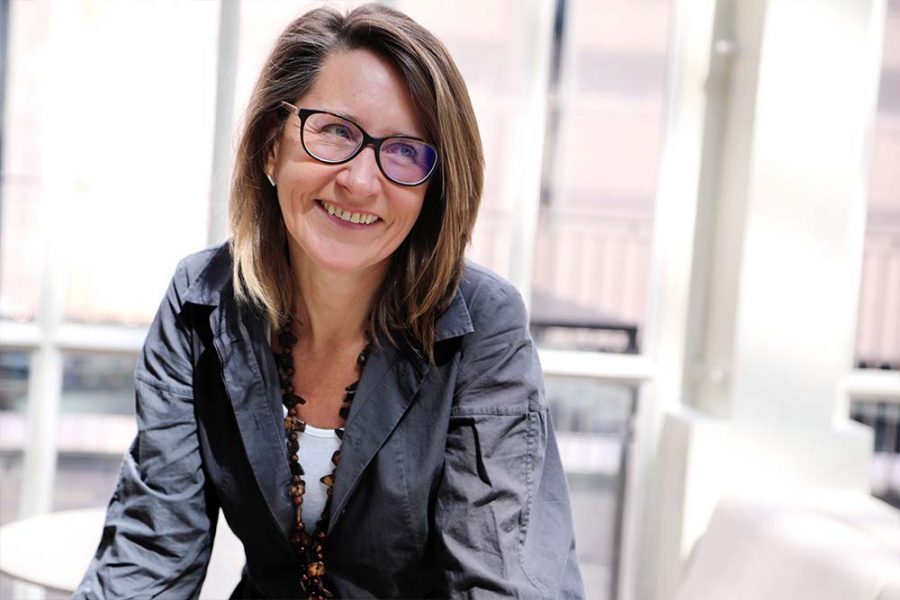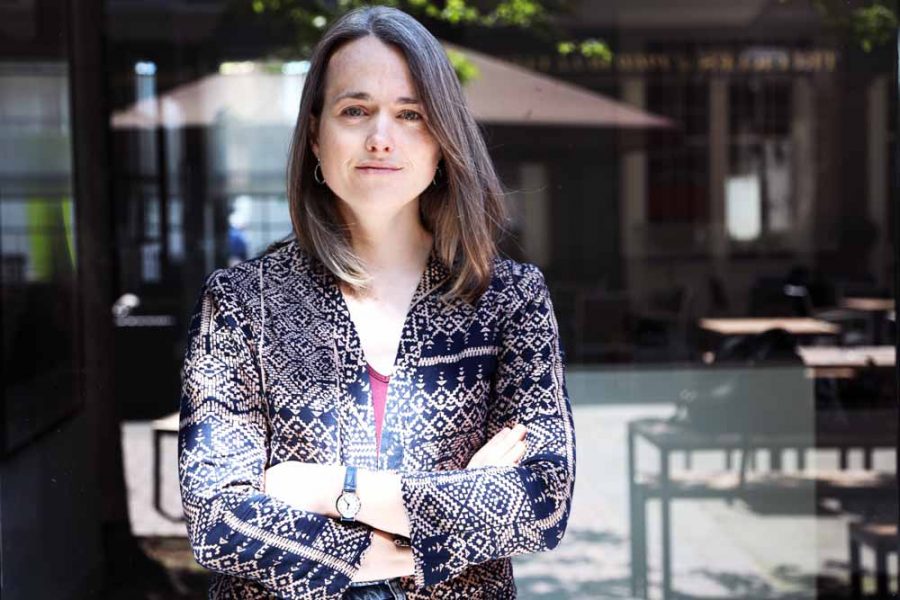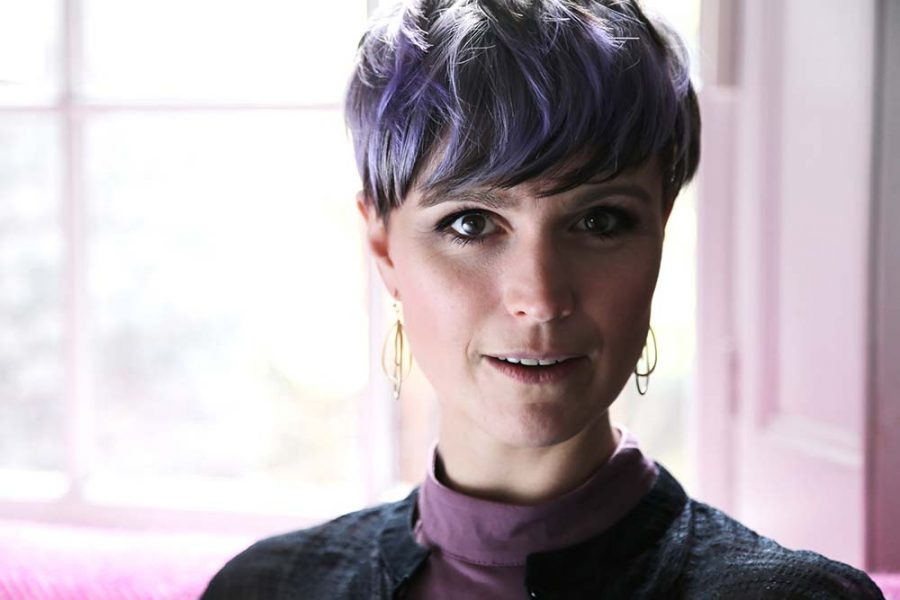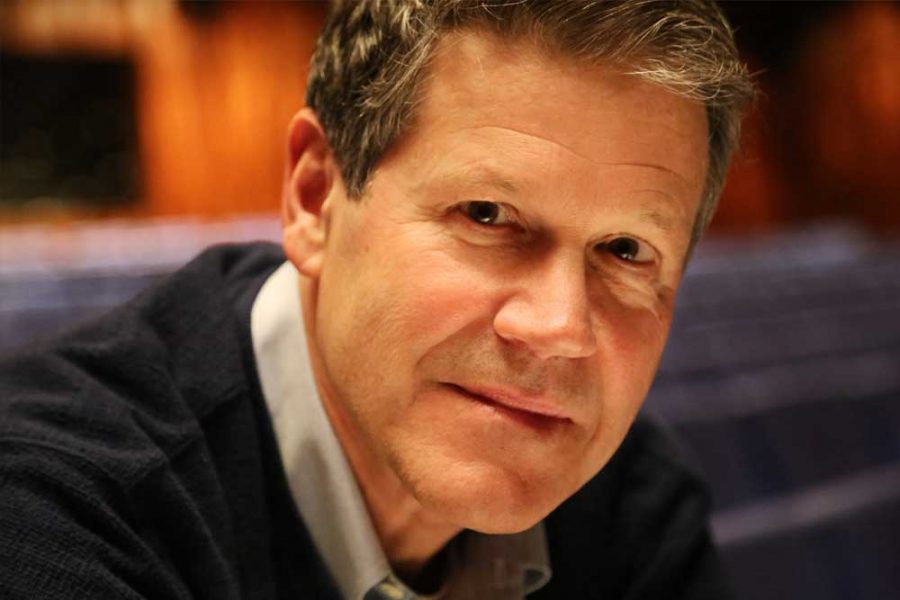Staging Humanity with Thomas Guthrie

September 2018
Interview and photos by
Frances Marshall
Opera director Thomas Guthrie is “hot news” according to OPERA NOW, with a production being described as “one of the Royal Opera House’s grandest achievements” by OPERA.
After meeting with Guthrie in his London home, it’s vibrantly clear how he has reached this level of success, when his sole intention is to create art that is human and relatable. He creates new and imaginative productions using his personal and empathetic perspective – ensuring the result is different, for all the right reasons.
Here we discuss the unexpected aspects of directing, dismantling the altar of music, what it is about death that fascinates him and his upcoming production of Dido and Aeneas at the Barbican, London.
When I started working with other directors I felt that these are my animals and I'm in the right cage."

Tell us about your first memories of music?
My sister and I were really competitive in general and we used to make up stories about our favourite pieces. It was stupid really, but when I look back now I realise that I saw music as mainly a form of storytelling, which explains a lot about why I’m doing what I do today.
My mum was a piano player and my dad played the french horn – both amateurs, but very keen. I also became a choirboy and I remember singing ‘There is Green Hill Far Away’ and I was hooked!
How did you come to identify as a director?
I opened my big mouth in a production that I was singing in and ended up directing it. That’s literally where it started. One of the key moments was sitting down with a score and watching a dress rehearsal of a Richard Jones production, and I remember in the first 15 minutes getting a huge sense of relief. It all made sense and I knew that this is what I should be doing. When I started working with other directors I felt that these are my animals and I’m in the right cage.
You’re a former Jette Parker Young Artist, what impact did this have on your career?
I joined the Jette Parker programme in 2007 so there was a lot of water under the bridge before then. It was a brilliant process and is still a great resource for me. It let me work out exactly who I was and the type of director I needed to be. It gave me a huge understanding of how people and the institution works.
What are the most important things to remember while you’re working on a production?
The preparation is everything, you have to get your scenes rehearsed in a very strict amount of time while also leading the room with respect and reassurance. You have to keep your head. For me it’s such a personal journey, you need to keep learning and most importantly leave the ego at the door.
Being a director is also a job of people management, how aware are you of this aspect?
It’s a brilliant question because there’s a lot of truth in it. You get directors who are not good people managers at all, but who can create great work. But I think it’s a good thing to be because it’s a much nicer experience when you can communicate what you want and need to do. Delegating well and leading people through something you want to do is a tricky process and you have to remember that everybody is different. Every singer is different and every team is different, and you have to adjust and react while also empowering them.
Empowering people and understanding what they need to feel free and confident is my job, so they can bring what they can to the table. I’m a reasonably empathetic person and I’m very interested in people and what makes them tick, while also looking at their perception of the situation. At the same time you must be the creative leader, the one who envisions the present and current, while also manifesting historical art at the same time. I adore the multifaceted side of the job and you won’t have a good production if you just demand an outcome – you need to get them to see it with you.

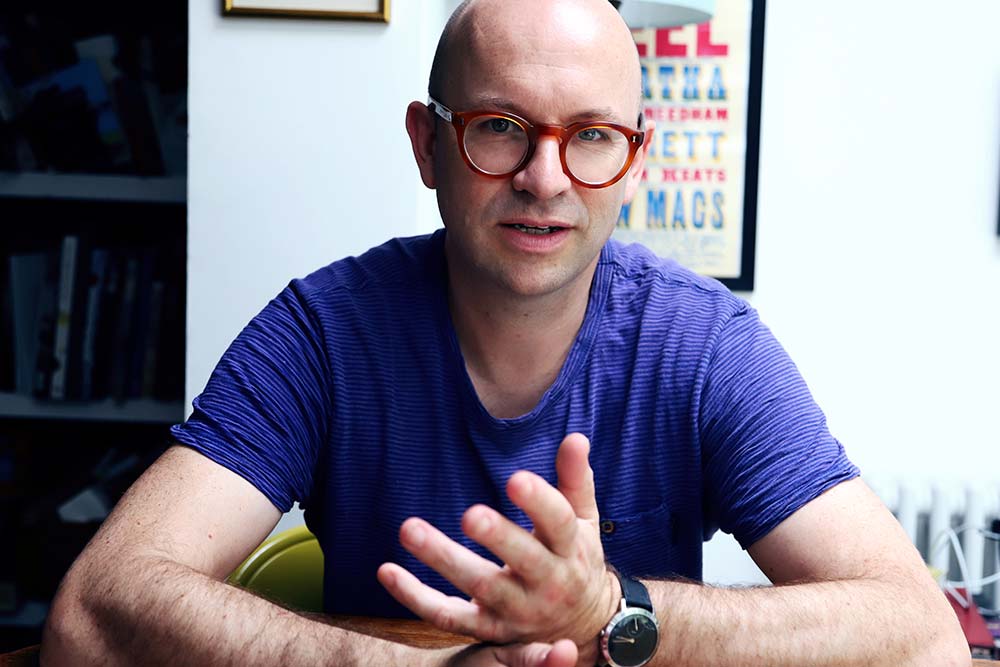


Your production of ‘The Monster in the Maze’ brought you to working extensively with children. What are the differences you find between directing children and adults?
For me there’s absolutely no difference, children and adults are equally different and complex and they’re all doing the same job. I treat everyone the same and that also applies to amateurs and professionals. That’s the great thing about theatre, it’s pretty equalising – especially if it’s good.
As a director, do you experience stage fright or an equivalent for your productions?
It’s quite a complicated thing, people wish you good luck as a director and I feel slightly embarrassed about it because my work is done, it’s up to the artists to perform. The stage fright for me happens weeks in advance, I do wake up thinking have I done enough preparation? Is it good enough? But that usually happens in advance of rehearsals which is a lot different to the more standard idea of performance anxiety.
What’s your approach to reviews?
As your career grows, you might dread the critics more, but the reviews aren’t important because they can’t be. What has to be my focus is the performers and how free they feel to throw themselves in with no judgement. However, there are the practicalities that you want the work to be well received so you get more work. At the end of the day you have the family to feed. I’ve rarely felt that this is not good work, or that I’ve not managed to get what I want out of it, and that is far more important to me.
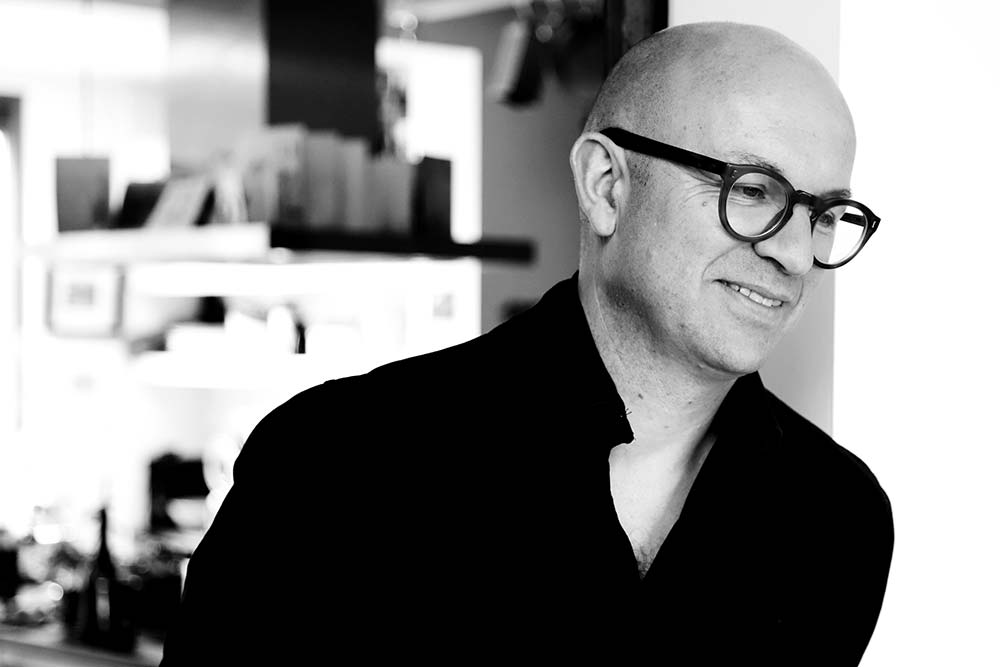

I'm a director because I was a singer, my process stems from the constant question 'what if it was me?'."

You’re a singer who has trained with the likes of Thomas Allen. Has working on both sides of the stage made you a more understanding director?
It really informs everything and every aspect. I have to watch it because it’s an advantage and disadvantage in some ways. I became a director because of my experience at the Royal Northern because of the discipline and craft that was involved. When I started working I saw that singers were being left marooned in rehearsals because some of the directors didn’t know how to communicate.
I can be hard on singers at some points, I don’t believe they should get away not knowing lines and not having basic stagecraft. I’ll drag them through it, which can waste time. But then on the other side of it, some artists do need to be left alone to work it out and they then find a way to unlock themselves. So interfering too soon can be detrimental. I’m a director because I was a singer, my process stems from the constant question ‘what if it was me?’.
Do you miss singing?
The subject of death is apparent in many of your works, is this a theme that fascinates you?
I didn’t deliberately go out seeking death as a theme, but my dad died in 2009 and my sister, who I was really close to, died in 2011. I lost those two wonderful people. I watched my sister’s three young children lose their mum, so I was looking at what death meant from many aspects and perspectives. Death Actually was done in 2014, which I think was influenced by my personal circumstances.
I wanted to stage the Bach Motets and I only realised in the process that they were composed for funerals. When I started researching funeral culture I discovered the Death Café, where you sit around having cake and tea and you all talk about death – it sounds ridiculous, but I came away feeling amazing, almost visceral. We should talk about death more, it’s a profoundly equalising time in all our lives.
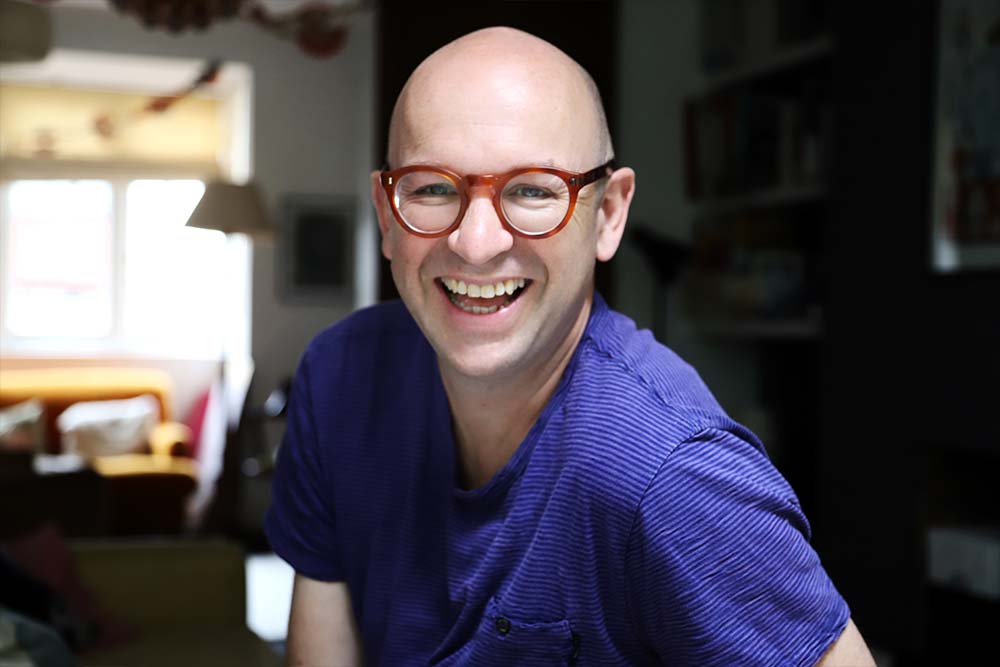

You’re known for holding your modern audience equal to the importance of your score, how do you balance this without ‘dumbing down’?
Don’t dumb it down, make it real. Opera is a storytelling medium, end of! If you tell the story honestly with all your imagination and wit, it will be good and different for all the right reasons. It’s all about that moment in time and the communication between the audience and the stage – I have little time for worshipping at the altar of music. Do it with your humanity, which is unique and also changes as you progress in your own life.
Your upcoming Dido and Aeneas in collaboration with The Academy of Ancient Music has all the ingredients to be an incredible production. What can the audience expect on the night?
Dido and Aeneas is a masterpiece and Purcell is one of my favourite composers. He didn’t settle for the obvious and to think he died at 36 and created so much is insane. I’ve seen so many productions that don’t answer the right questions, so I’m thrilled to have an opportunity to do it.
Some people find it hard to understand Dido’s death at the end, it seems too simplistic to say that she lost a lover and that’s it. Her reaction can be interpreted as over-dramatic and potentially alienates her from the audience. But if you think about what it must be like to be a queen – who is surrounded by men who want to influence, overpower and have sex with her – she didn’t allow herself to fall in love because she was married to the state; she sacrificed her personal life because in her mind she needed to be strong and make decisions on behalf of the country. However, it’s good politics to be married so she ironically had to deal with this pressure too. She surrenders to what she thinks is ‘the one’. Her suicide is due to her betrayal of herself and her country, what else could she do? I just want people to think of this woman.
It’s a concert staging, and without the set, lighting and paraphernalia, the audience have to imagine it themselves – which can be just as or even more powerful. My aim is to spark the imagination of the audience, because I don’t like to tell people what to think. With the band on stage it’s a great energy and so relevant to the story telling.
Don't dumb it down, make it real. Opera is a storytelling medium, end of!"

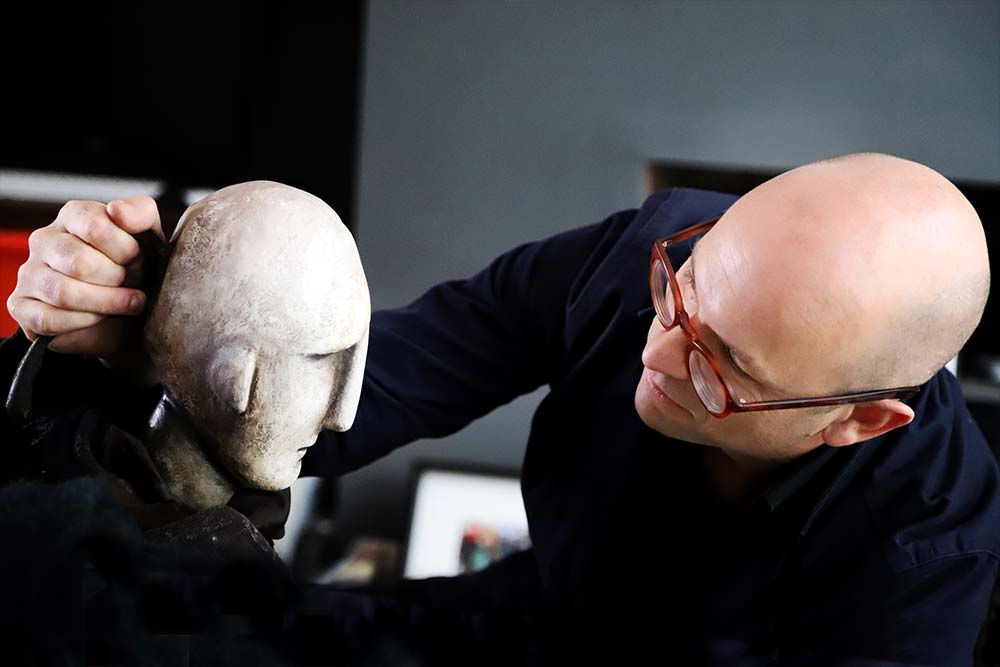

The magic thing about puppets is the moment you see them as living things and they also die brilliantly. All you have to do is walk away from them and the life disappears."

Tell us about the puppets…
We’re not doing a puppet version of Dido and Aeneas, and it’s so important to say that. The singers are operating them, and the person who’s having the thought has to be operating the puppet. The magic thing about puppets is the moment you see them as living things and they also die brilliantly. All you have to do is walk away from them and the life disappears. The ears open and puppets communicate through feelings not words. It makes you think about what theatre really is. The simple concert staging is the perfect setting for puppetry.
Guthrie’s upcoming Dido and Aeneas at the Barbican is not one to be missed!
To find out more about Thomas Guthrie see: www.thomasguthrie.com
All images displayed in this article are subject to copyright.
Share this article


